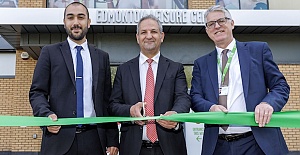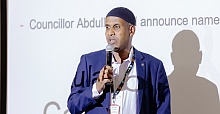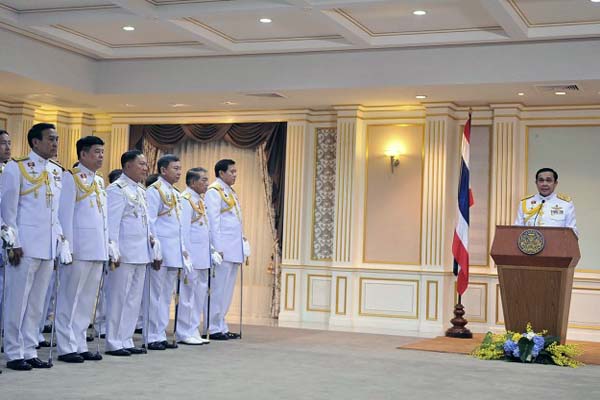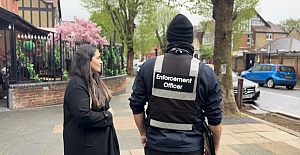Thailand's coup leader General Prayuth Chan-ocha has assumed his post as prime minister upon receiving the royal endorsement of the King - four days after his election by the junta-appointed National Legislative Assembly. Chan-ocha was officially appointed at around 10:30 a.m. Monday by King Bhumibol Adulyadej during a brief ceremony at the army headquarters in Bangkok– rather than at the Government House where civilian leaders have generally received the command in the past. In a quasi-unanimous vote last Thursday, Chan-ocha had received 188 votes from the 191 members present, with the assembly's president and two vice presidents abstaining - as is customary for reason of political neutrality. No other name had been nominated for the premiership to the assembly, all of whose members have been handpicked by the junta. Thailand has not had a coup maker as head of a post-coup interim government since the military dictatorship of Field Marshall Sarit Thanarat in the 1960s.
In the two last putsches, in 1991 and 2006, the junta of the time had preferred to select technocrats or retired military officers as prime minister in order to lessen their authoritarian image vis-à-vis the international community.
General Chan-ocha's rise to the premiership is a sign that the military seeks to avoid the risk of their agenda being altered by a civilian government with some leeway, as happened in 1991 and 2006.
Surveys typically indicate his high level of popularity – albeit, it is difficult to judge given that all criticisms of the junta are banned by martial law.
Despite this, criticisms are mounting on multiple fronts. Most notably, Chan-ocha is accused of reversing a decades-old policy of decentralization and cutting subsidies to assist farmers, as well as of a lack of transparency.
With the government's composition expected to be announced in coming days, local media have already suggested that at least a third of ministers will be military officers. The interim government will lead the country until the new election is held toward the end of 2015.
The junta has promised "fully democratic elections" in October 2015 after the endorsement of a permanent constitution, which will not be submitted to a popular referendum.
Thailand's political crisis began in November when then Prime Minister Yingluck Shinawatra faced a wave of opposition protests after her government pushed through an amnesty that would have lifted the 2008 corruption conviction against her brother Thaksin, a divisive figure and ex-premier deposed in a 2006 coup.
Confronted by massive demonstrations, the government withdrew the bill, but the opposition alleged corruption by the government and Shinawatra family.
Yingluck dissolved the parliament December 9 and called February 2 elections, which were disrupted by the People Democratic Reform Committee, who want an unelected "people's council" to run Thailand until the political system is reformed.
She was then herself removed by the Constitutional Court on May 7 in relation to the transfer of a high-ranking civil servant in 2011. The May 22 coup removed the remaining ministers and dissolved the Senate, the only standing legislative assembly.


 Prime Minister Keir Starmer's 2025 Easter message
Prime Minister Keir Starmer's 2025 Easter message After Nesil Caliskan a by-election will be held in Jubilee ward in Enfield
After Nesil Caliskan a by-election will be held in Jubilee ward in Enfield Publishing the analysis, Labour’s Cllr Ergin Erbil said Everybody in Enfield deserves basic rights
Publishing the analysis, Labour’s Cllr Ergin Erbil said Everybody in Enfield deserves basic rights Gaza-Israel conflict Statement from Cllr Ergin Erbil, Leader of Enfield Council
Gaza-Israel conflict Statement from Cllr Ergin Erbil, Leader of Enfield Council UK AMBASSADOR TO TURKEY VISITS FETHIYE
UK AMBASSADOR TO TURKEY VISITS FETHIYE Journalists from Europe held the Turkish Media Workshop in Skopje
Journalists from Europe held the Turkish Media Workshop in Skopje The European Union called on Turkey to uphold democratic values
The European Union called on Turkey to uphold democratic values Turkish citizens in London said Rights, Law, Justice
Turkish citizens in London said Rights, Law, Justice The 'Prince of Paris' has impressed in his first EuroLeague season
The 'Prince of Paris' has impressed in his first EuroLeague season Saran Media And Euroleague Basketball Extend Media Rights Partnership for Four More Years
Saran Media And Euroleague Basketball Extend Media Rights Partnership for Four More Years Will Rangers be Jose Mourinho’s next victim?
Will Rangers be Jose Mourinho’s next victim? Jose Mourinho's Fenerbahce face Rangers on Thursday
Jose Mourinho's Fenerbahce face Rangers on Thursday Residents welcomed back to Edmonton Leisure Centre
Residents welcomed back to Edmonton Leisure Centre Barclays has become the biggest UK lender so far to cut mortgage rates
Barclays has become the biggest UK lender so far to cut mortgage rates THE SPRING STATEMENT EXPLAINED, UK ECONOMIC OUTLOOK AND GROWTH FORECASTS
THE SPRING STATEMENT EXPLAINED, UK ECONOMIC OUTLOOK AND GROWTH FORECASTS Launch of Made in Enfield gift shop to celebrate local artists and designers
Launch of Made in Enfield gift shop to celebrate local artists and designers
















